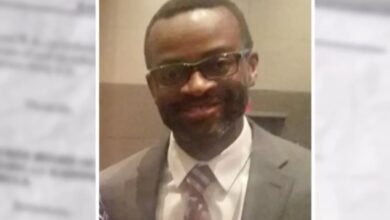Baldwin First Democrat in Wisconsin Senate Race
By HENRY C. JACKSON and SCOTT BAUER
WASHINGTON – Openly gay Wisconsin Rep. Tammy Baldwin’s entrance into the Senate race this week kick-started a campaign that could be key to the future makeup of Congress. But her announcement quickly raised questions about whether she is too liberal for a state that swung heavily toward the GOP just a year ago.
Baldwin’s potential Republican opponents, along with state and national party members, moved quickly to paint the six-term congresswoman as too far to the left to win the seat held by retiring Sen. Herb Kohl.
“She’s voted for virtually the entire Obama agenda, except when it wasn’t liberal enough,” said Mark Neumann, the only Republican officially in the Senate race.
Baldwin talked past such criticism after announcing her bid in an email and video to supporters early Tuesday. Speaking to reporters later, she said her race will focus on boosting the middle class.
“I am a fighter,” she said. “When you stand up to big and powerful interests, that sometimes leads to the type of labels you’re hearing being offered at this point.”
Baldwin provides a jolt to a 2012 senate race that has been slow to develop.
Republicans expect a bruising primary, once someone besides Neumann gets in the race. Tommy Thompson, the longtime former governor and ex-Health and Human Services secretary, is considering his first run for office since 1998. Other potential candidates include state Assembly Speaker Jeff Fitzgerald, a top ally of Republican Gov. Scott Walker; state Sen. Frank Lasee, who has advocated arming teachers to protect their classrooms; and former state Sen. Ted Kanavas.
Rep. Ron Kind and former Rep. Steve Kagan are the most prominent Democrats still considering bids. Both are considered more moderate than Baldwin. The 49-year-old is one of the most liberal members of the House and the first person to be elected to Congress after announcing she was gay.
Democratic and Republican strategists agree the state will be crucial to control of the Senate, where Republicans need to flip just four seats to take control. Few analysts see a way for Democrats to maintain control without holding onto the seat in Wisconsin.
Although Baldwin replaced Republican Scott Klug for her congressional seat, her Madison-based district is considered to be the state’s liberal bastion. Her decision to run comes against a backdrop of serious setbacks for the state’s liberal movement: Republicans took control of the statehouse in 2010, picked up two Democratic House seats and defeated the state’s most prominent liberal, former Sen. Russ Feingold, who was soundly beaten by tea party favorite Ron Johnson in 2010.
Democrats slowed the GOP’s momentum earlier this year with a fight against efforts by Walker to curb unions’ collective bargaining rights, successfully recalling two Republican state senators who voted for Walker’s plan.
But Republicans made clear Tuesday they believe Baldwin’s voting record and her fealty to the party line is a logical line of attack.
“We look forward to the clear contrast this race will provide between an extreme Madison liberal versus a common-sense, pro-jobs and fiscally responsible Republican candidate,” said Chris Bond, a spokesman for the National Republican Senatorial Campaign Committee.
Democratic strategists said they were confident the party would hold on to the seat, be it Baldwin or someone else.
“Wisconsin Republicans are gearing up for a bloody, divisive tea party primary that will result in an extreme, right wing nominee who is out of touch and unacceptable to mainstream Wisconsin voters,” said Matt Canter, a spokesman for the Democratic Senatorial Campaign Committee. “In the end, the Republican nominee may make a great tea partyer but he’ll make a terrible senator for Wisconsin’s middle class families.”
For her part, Baldwin began to sketch out a message on Tuesday that portrayed her as a pragmatic Democrat who took tough stances even when they were politically uncomfortable, rather than an instinctive liberal.
She cited votes in 2002 against going to war with Iraq and overturning the Glass-Steagall Act, which separated federally insured commercial banking from investment banking activities, in 1999 as showing she had sound judgment.











Comments